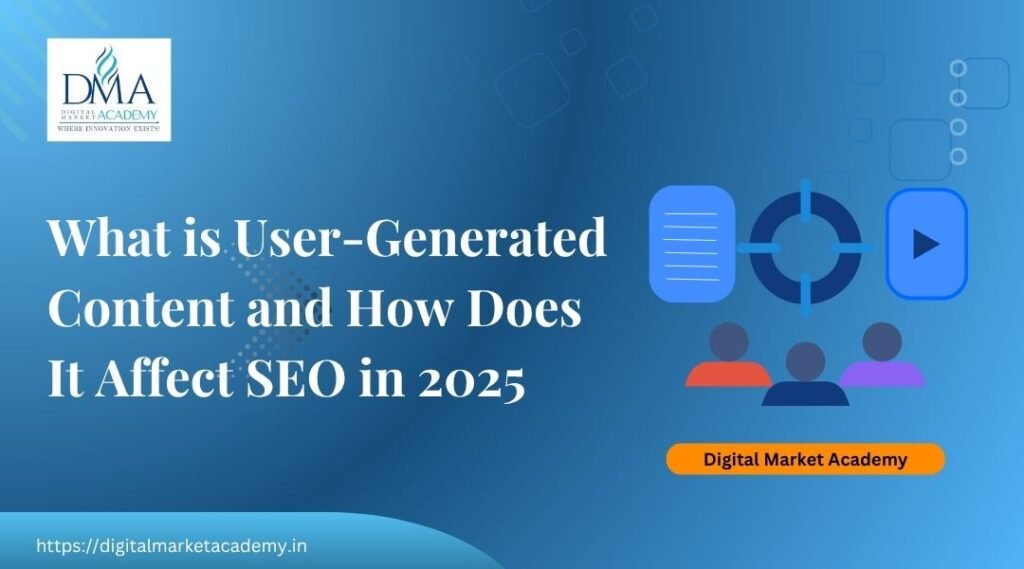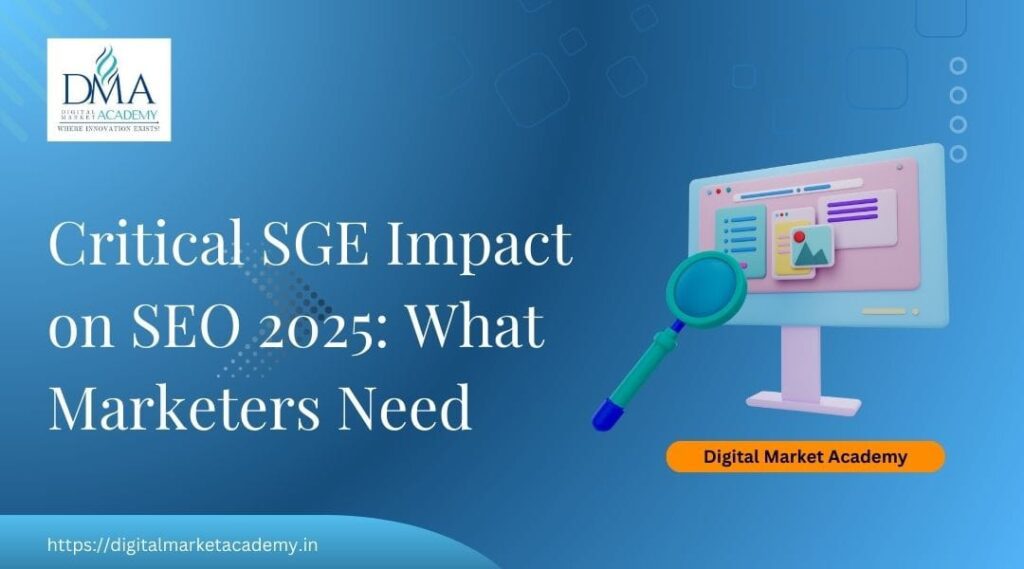Understanding the Connection Between User-Generated Content and SEO
User-generated content and SEO are no longer separate pillars of digital strategy, they now work hand-in-hand to improve visibility, engagement, and credibility online. In 2025, search engines like Google continue to reward websites that showcase real human experiences, and UGC is a direct path to doing just that.
Whether it’s a restaurant in Bangalore flooded with Google reviews or a digital academy using student testimonials, user-generated content drives rankings through authenticity. Understanding how user-generated content and SEO are connected can give your brand a serious competitive edge. This blog will break it all down for you with real examples, actionable tips, and proven insights.
What Is User-Generated Content (UGC)?
User-generated content refers to any piece of content created by individuals who are not officially representing the brand. This includes written reviews, comments, ratings, user-submitted photos, videos, forum contributions, and even social media posts mentioning your product or service.
For example, a Bangalore-based skincare brand may receive hundreds of reviews on Nykaa or Amazon, while customers also post real-use videos on Instagram Reels. All of this is UGC, content created by users, not marketers. And it works because people trust people, not polished ads.
Why Search Engines Prioritize UGC in 2025
Google and other search engines now focus heavily on Experience, thanks to the updated Google’s E-E-A-T guidelines. UGC naturally fits this framework and plays a major role in boosting search trust signals.
Every product review, discussion, or user story represents first-hand experience. When search engines detect this type of content, especially in context with keywords and location, it gets rewarded with higher visibility.
Take a Bangalore-based food blogger. If readers actively comment with their own street food experiences, those user interactions add depth, authority, and value to the original post. This connection between user-generated content and SEO is a key example of how user experience shapes SEO in 2025.
E-E-A-T and User Experience
Every product review, discussion, or user story represents first-hand experience. When search engines detect this type of content, especially in context with keywords and location, it gets rewarded with higher visibility.
Take a Bangalore-based food blogger. If readers actively comment with their own street food experiences, those user interactions add depth, authority, and value to the original post.
Signals of Trust and Relevance
Search engines evaluate a page not only for keywords but also for authentic interaction. Real feedback, unedited reviews, or Q&A sections indicate that the content is trustworthy and helpful. These trust signals elevate the SEO rankings naturally, without needing paid ads or aggressive link-building.
Types of User-Generated Content That Boost SEO
Type of UGC | How It Boosts SEO | Indian Example |
Product/Service Reviews | Adds long-tail keywords, trust signals | Amazon reviews in Hindi, Flipkart ratings |
Blog Comments | Increases session time, content depth | Food blogs with active comment sections |
Forum Discussions | Builds topic authority, keyword variety | Reddit India, Quora responses |
Social Media Mentions | Drives backlinks and search interest | Instagram tags for Bangalore cafes |
Testimonials | Adds emotional trust, influences CTR | Student reviews of coaching institutes |
These content types don’t just increase SEO, they also improve conversion rates, especially for service-based industries and online education platforms.
The Real Impact of UGC on SEO: Indian Case Study
Let’s look at Zomato, India’s leading food discovery platform. Nearly all its restaurant pages rank highly in Google, often above the restaurant’s own website. Why? Because every Zomato page is filled with authentic, ongoing UGC in the form of user reviews, photos, and comments.
This mirrors the findings shared in Moz’s local SEO case study, which shows how platforms with high-quality user reviews dominate local search results.
The same applies to Google Business Profiles. A restaurant in Indiranagar, Bangalore, with 300+ positive reviews will almost always outrank a similar restaurant with fewer or no reviews. These reviews are pure user-generated content, and they directly influence visibility on Google Maps and local search.
Why UGC Outperforms Branded Content
Users naturally include the types of long-tail keywords that SEO professionals work hard to target. Phrases like “best AI marketing course in Bangalore” or “how Digital Market Academy in Bangalore helped me land a job” are common in testimonials, and incredibly valuable for SEO.
Authentic Voice Builds Trust
Imagine reading two descriptions of a product, one from a company, and one from a real customer. The second is more believable. Google knows this and has adjusted its ranking systems accordingly.
Organic Keywords and Long-Tail Terms
Users naturally include the types of long-tail keywords that SEO professionals work hard to target. Phrases like “best AI marketing course in Bangalore” or “how DMA helped me land a job” are common in testimonials, and incredibly valuable for SEO.
How to Structure UGC to Help SEO
Simply collecting reviews or allowing comments is not enough. How the content is structured and optimized matters.
- Make sure comments and reviews are indexable (not hidden behind JavaScript).
- Use schema markup for reviews and FAQs to get featured in rich results.
- Allow user profiles and contribution history to build authority signals.
- Segment UGC with filters, by topic, date, or rating to improve UX.
If you’re using WordPress, plugins like WP Review or bbPress can help you integrate and optimize UGC without extra development. But more importantly, it’s how you leverage that content within a structured SEO strategy that makes the difference.
At Digital Market Academy in Bangalore, we teach these frameworks in detail in our classroom digital marketing courses. We also guide colleges through on-campus digital marketing training that includes real-world content generation by students, which can double as UGC that improves their website SEO.
Key Challenges of UGC for SEO
UGC is a double-edged sword. When managed poorly, it can lead to spam, irrelevant content, or even damage your brand reputation.
- Spam comments: Use filters or moderation queues.
- Fake reviews: Implement account verification and report abuse features.
- Duplicate content: Avoid generic review templates.
We’ll cover UGC moderation in detail in a separate post in this cluster.
FAQ: People Also Ask
User-generated content refers to reviews, comments, and other contributions by users. It impacts SEO by improving trust, engagement, and keyword diversity, all of which boost search rankings.
Yes. For local SEO in India, user reviews on Google and Justdial directly affect your business’s visibility in local search results.
Yes, if it's spammy or poorly moderated. UGC must be high-quality, relevant, and genuine to benefit SEO.
Reviews, Q&A sections, long-form comments, and testimonial videos are most effective, especially when they include long-tail keywords.
Encourage reviews, enable commenting, offer incentives, and create a community space, we’ll explore this in the next blog.
Conclusion: Why UGC Should Be Part of Your SEO Strategy in 2025
In the era of AI-driven search and experience-based ranking, user-generated content and SEO are no longer separate strategies, they are one and the same. UGC helps search engines see your site as trustworthy, active, and community-focused. And that’s exactly what earns higher rankings in 2025.
At Digital Market Academy in Bangalore, we don’t just teach SEO, we teach how to adapt to the real trends shaping it. Our classroom digital marketing courses and on-campus training for colleges include UGC strategy, E-E-A-T implementation, and AI-friendly content techniques. If you want to master the future of SEO, this is where you start.

Rajesh Menon is a leading digital marketing trainer and strategist based in Bangalore, with over 15 years of experience in SEO, advertising, and digital growth planning. As the Founder and CEO of Digital Market Academy, he is known not just for his ability to teach, but for his visionary thinking and deep strategic insight.
At the academy’s Kasturinagar center, Menon leads classroom training programs and digital marketing boot camps. He also conducts on-campus sessions at colleges for undergraduate and postgraduate students, and provides digital enablement workshops for MSMEs and startups. His approach blends practical execution with long-term strategy, making him a trusted mentor for aspiring marketers and small business owners alike.
Rajesh writes regularly on the Digital Market Academy blog, and also shares expert content on Medium and LinkedIn, where his work is followed by both learners and industry peers.
You can find links to his Medium and LinkedIn profiles in the author box below.




